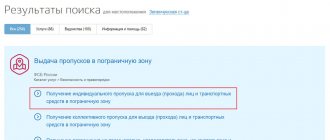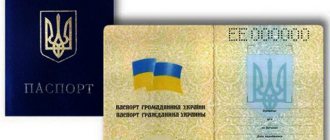Concept and types of administrative expulsion
Administrative deportation is a measure of forced or voluntary departure from Russia of foreign citizens - or stateless persons. Expulsion from the Russian Federation can only be carried out after a court ruling has been issued.
The decision on administrative expulsion can be executed forcibly or voluntarily.
This leads to two types of punishment:
- Voluntary expulsion.
It means that the foreigner leaves Russia voluntarily, but under the control of the services. In this case, the citizen independently travels abroad of the Russian Federation under the control of representatives of the Internal Affairs Directorate of the Ministry of Internal Affairs. If he suddenly tries to ignore the decision on deportation, he will be subject to penalties and forced deportation. - Forced expulsion
. Full control over a foreign citizen will be exercised if he has committed an offense twice in a year. Until the moment of leaving the Russian Federation, the person will be placed in a specialized center.
They can’t just send anyone abroad. The difference between this type of punishment and others is that the guilt of the citizen who committed the offense will be proven in court.
It will take a lot of time before a citizen is forced to leave Russia. Before the deportation procedure, many procedural actions are carried out, on the basis of which the court subsequently makes a decision on punishment in the form of deportation from the state borders of the Russian Federation.
The legislative framework
It is worth knowing what regulations and laws govern deportation from the Russian Federation in order to understand your rights.
Issues of administrative expulsion are regulated by the following laws:
- Article 3.10 of the Code of Administrative Offenses of the Russian Federation.
- Chapter 18 of the Code of Administrative Offenses of the Russian Federation.
- Federal Law No. 115 “On the legal status of foreign citizens in the Russian Federation.”
- Federal Law No. 114 “On the procedure for leaving the Russian Federation and entering the Russian Federation.”
- Federal Law No. 410 “On Amendments to the Federal Law “On Bailiffs” and Certain Legislative Acts of the Russian Federation.”
- Decree of the Government of the Russian Federation No. 382 “On placing a mark on the prohibition of entry into the Russian Federation of certain categories of foreign citizens and stateless persons.”
- Order of the Ministry of Internal Affairs of Russia and the Federal Migration Service of Russia No. 758/240 “On the organization of activities of the Ministry of Internal Affairs of the Russian Federation, the Federal Migration Service and their territorial bodies for the deportation and administrative expulsion from the Russian Federation of foreign citizens or stateless persons.”
- Resolution of the Plenum of the Supreme Court of the Russian Federation dated December 19, 2013 No. 40 “On amendments to the Resolution of the Plenum of the Supreme Court of the Russian Federation dated March 24, 2005 No. 5 “On some issues that arise for courts when applying the Code of the Russian Federation on Administrative Offenses”, others legislative and by-laws."
These
are not all laws and acts. We have listed the important ones that you can refer to if problems arise.
Summary
- Is it possible to challenge a court decision on expulsion?
- Is it possible to cancel a court decision to deport a foreign citizen?
- What should I do if I did not leave the Russian Federation due to a court decision on deportation?
- What to do after a court decision on a fine without expulsion.
- Is it possible to cancel a court decision to deport a foreign citizen?
- What arguments can be used to appeal a court decision on expulsion?
- Approximately how long does a court decision to deport or expel a person from the Russian Federation last?
- The court's decision
- Magistrates' Court decision
- District Court decision
- Complaint against a court decision
- Court of Appeal decision
Questions
1. Is it possible to challenge a court decision on expulsion.
1.1. Hello! Possibly through a higher court.
1.2. Hello. Yes, it's possible. But to assess the prospects, it is necessary to study the court ruling.
1.3. It is possible, if there are grounds, in the prescribed manner, in compliance with the deadlines. Contact a lawyer for help with this.
2. Is it possible to cancel a court decision on the deportation of a foreign citizen?
2.1. It is possible if there are violations in the decision making.
3. What should I do if I did not leave the Russian Federation due to a court decision on deportation?
3.1. Hello, in this case, if you did not comply with the court decision, you may be forcibly expelled and entry will be closed for a longer time.
4. What to do after a court decision on a fine without expulsion.
4.1. Hello. Federal Law of July 25, 2002 N 115-FZ “On the legal status of foreign citizens in the Russian Federation” (as amended and supplemented)
Pay or appeal.
5. Is it possible to cancel a court decision on the deportation of a foreign citizen?
5.1. Can be canceled if there are procedural violations. In other words, if government agencies and courts “messed up.” This rarely happens. Good luck.
5.2. Hello. You can cancel if there are reasons. In order to say whether there are grounds for canceling this decision, it is necessary to study the court decision and the materials of the case on the administrative offense. Contact a lawyer or lawyer from your city, he will familiarize himself with the materials and, specifically for your situation, will give a forecast about the chances of appealing.
5.3. Depending on the specific circumstances, the deportation decision may be overturned. To do this, you should study the materials. And only then talk about what the chances are.
Sincerely, lawyer Stepan Dilbaryan.
5.4. Good morning, Gulya! You can appeal to the court by way of appeal against the decision of the court of first instance. Contact a lawyer and they will help you draw up the necessary documents.
5.5. Hello, Gulya! The decision to expel can be appealed if there are legal grounds. With respect and readiness to help, STANISLAV PICHUEV.
5.6. Hello. To answer your question and to assess the prospects of appealing the decision to the court, it is necessary to study the court decision itself. Is it in your hands?
6. What arguments can be used to appeal a court decision on expulsion?
6.1. Hello, in order to talk about the arguments for appealing a decision, it is necessary to study the content of the decision itself and the rest of the case materials. Good luck and all the best
6.2. Good day to you. No need to ask stupid questions. If you believe you have grounds to appeal, contact an attorney. Good luck and all the best.
7. Approximately how long does a court decision to deport or expel a person from the Russian Federation last?
7.1. The duration of consideration of the case may depend on various factors (the busyness of the court, objections of the parties, appearance of the parties, etc.). Unfortunately, consideration times often exceed those established by law.
Read more: Where to apply for a building permit
7.2. Hello Olga. According to Art. 141 CAS RF “Administrative cases are considered and resolved by courts of general jurisdiction before the expiration of two months from the date of receipt of the administrative claim in court, including the time frame for preparing the administrative case for trial. In complex administrative cases, the period may be extended, but not by more than one month (it is unlikely that this is your case). But, based on practice, courts often violate the established deadlines.
8. The court imposed an administrative fine without administrative expulsion; the court decision was made on July 1, 2019. After 10 days, the decision will come into force. How long must I leave the territory of the Russian Federation after the court decision comes into force?
8.1. Hello. From the moment it comes into force. You need to familiarize yourself with the Decree. What actions did you take?
9. The situation is that my common-law husband has been deported for 5 years, but we have a family and children in Russia. Is it possible to cancel a court decision, if so, where to go?
9.1. Hello! Through the court, you can lift the ban on entry into the Russian Federation. In your case it will work.
9.2. You can appeal the court decision to a higher court and cancel the administrative deportation.
9.3. First, you should request a decision on an entry ban: keep in mind that this act is issued after a court order on expulsion and, most likely, you do not have one in your hands. You need to contact the Ministry of Internal Affairs. Further, within three months you have the right to appeal the said decision on the entry ban. The procedure is not easy, so you should seek qualified legal support.
10. My friend is a citizen of Kyrgyzstan. The court ruled on administrative expulsion and a fine of 2000. They told me to leave the Russian Federation within 5 days.
10.1. Hello! And what do you want? Cancel deportation? Lift the entry ban?
11. They called me to the MFC to obtain a patent, but they told me that you had a decision, which I appealed and partially won without expulsion, but I paid a fine of 5 thousand and went home. I took with me all the documents that were given after the trial and not long ago I came back to Moscow and there at the MFC they said that I need to show the writ of execution for the court decision, but I left these documents at home and came to Moscow, what should I do, how will this problem be solved. ?
11.1. Hello. In your case, I advise you to ask your relatives to send you documents by mail. Without documents you will not be able to prove anything. Or go to court and ask once again to give you a court decision and information about paying the fine. But this is only if a receipt for payment of the fine was provided to the court.
12. I am from Kyrgyzstan. There was a trial, then a ruling of a fine of 2000 and deportation. I live in a civil marriage with a citizen of the Russian Federation. There are children: 2 children, 14 years old and 4 years old. True, not mine, but they call me dad. If we register the marriage, I will register the children in my name. Will it help to overturn a court decision? Thank you in advance.
12.1. Unfortunately, registering a marriage will not help you in any way in terms of canceling the court order.
13. What to do if a person has not left Russia for several years after a court decision on deportation.
13.1. Hello! Please clarify what exactly your question is. When was the court decision on expulsion?
Citizens who violate the law may be subject to sanctions in accordance with the Code of Administrative Offenses of the Russian Federation. The Code also includes responsibilities for migrants. Thus, administrative expulsion may be applied to foreign citizens as one of the penalties. In addition, in accordance with the Code of Administrative Offenses of the Russian Federation, fines are collected from migrants and a temporary ban on entry into Russia is established.
Reasons for deporting a foreigner from Russia
Administrative expulsion from the country is impossible without grounds. If an offense is committed, a foreign citizen or a stateless person will definitely be asked to leave the Russian Federation.
The Code of Administrative Offenses provides for administrative expulsion for the following types of offenses:
- Violation of the regime of the State Border of the Russian Federation (Part 2 of Article 18.1 of the Code of Administrative Offenses of the Russian Federation). For example, violation of the rules of entry into the territory of Russia, transit passage or stay in the country.
- Violation of the regime at checkpoints across the border of the Russian Federation (Part 2 of Article 18.4 of the Code of Administrative Offenses of the Russian Federation).
- Violation of the stay regime by a foreign citizen or stateless person (Article 18.8 of the Code of Administrative Offenses of the Russian Federation).
- Violation of the rules for attracting and using foreign labor in the Russian Federation (Part 2 of Article 18.10).
- Violation of immigration rules (Article 18.11 of the Code of Administrative Offenses of the Russian Federation). For example, late registration with the migration service.
Citizens can also be expelled for committing a crime that provides for administrative liability.
Conclusion
Sanctions in the form of sending a person abroad are applied to persons over 16 years of age if they violate migration legislation and (or) commit an offense provided for by the Code of Administrative Offenses of the Russian Federation. At the same time, deportation in most cases is not a mandatory measure and can be replaced by a fine. If punishment is applied, the citizen has the right to appeal it. Otherwise, you must leave the Russian Federation with a further ban on visiting the country for at least 5 years.
1. Deportation is the forced expulsion of a foreign citizen from the Russian Federation in the event of loss or termination of legal grounds for his further stay (residence) in the Russian Federation ( Part 1, Article 2 of the Federal Law “On migration registration of foreign citizens and stateless persons in the Russian Federation” dated July 18. 2006 N 109-FZ ).
Cases in which deportation is carried out (
Article 31 of the Federal Law “On migration registration of foreign citizens and stateless persons in the Russian Federation” dated July 18, 2006 N 109-FZ
):
— failure to comply with the obligation of a foreign citizen whose period of residence or temporary stay has been shortened to leave the Russian Federation within 3 days;
— failure to comply with the obligation of a foreign citizen whose temporary residence permit or residence permit has been cancelled, to leave the Russian Federation within 15 days.
2. Administrative deportation is a forced and controlled movement across the State Border of the Russian Federation outside the Russian Federation, and in cases provided for by the legislation of the Russian Federation, in a controlled independent departure from the Russian Federation ( Part 1 of Article 3.10 of the Code of Administrative Offenses of the Russian Federation ).
Grounds for administrative expulsion:
— violation of the regime at checkpoints across the State Border of the Russian Federation;
— violation of the rules for attracting and using foreign labor in the Russian Federation;
— violation of immigration rules;
— violation of the rules for crossing the State Border of the Russian Federation;
— violation of the regime of stay in the Russian Federation.
Relocation during administrative expulsion is carried out through official transfer
a foreign citizen or stateless person
to a representative of the authorities of a foreign state
to whose territory the person is being expelled.
Administrative deportation is ordered by the court
or
relevant officials
.
By decision of the court, until expulsion is carried out, expelled persons may be kept in special premises
.
The expulsion is carried out by border control authorities
or
the internal affairs department
, formalized in the form of
a bilateral act
, which is attached to the resolution on the administrative offense.
3. Readmission - admission, return and transit of persons located on the territory of the relevant state in the event that a citizen of a third state or a stateless person does not or no longer meet the current conditions for entry, stay or residence in the territory of the host state.
Foreign citizens and stateless persons subject to readmission
,
are deprived of the right to obtain
a temporary residence permit, residence permit and work permit.
Political refuge
Political asylum is granted by the Russian Federation to foreign citizens
and
stateless persons
seeking
asylum and protection from persecution
or
a real threat of becoming a victim of persecution
in the country of their citizenship or in the country of their usual residence
for socio-political activities and beliefs
that do not contradict
democratic principles
recognized by the international community,
norms of international law
(
clauses 1 and 2 of the Regulations on the procedure for granting political asylum to the Russian Federation ).
The provision of political asylum to the Russian Federation is carried out by decree of the President of the Russian Federation
(
Clause 3 of the Regulations on the procedure for granting political asylum to the Russian Federation ).
A person who has been granted political asylum enjoys rights and freedoms on the territory of the Russian Federation and bears responsibilities on an equal basis with citizens of the Russian Federation
, except for cases established for foreign citizens and stateless persons by federal law or an international treaty of the Russian Federation.
The provision of political asylum also applies to family members
of a person who has received political asylum,
provided that they agree with the application
; the consent of children under 14 years of age is not required (
clause 4 of the Regulations on the procedure for granting political asylum to the Russian Federation ).
Grounds for not granting political asylum to the Russian Federation ( clause 5 of the Regulations on the procedure for granting political asylum to the Russian Federation
):
— the person is being prosecuted for actions (inaction) recognized as a crime in the Russian Federation, or is guilty of committing actions contrary to the goals and principles of the UN;
— the person has been charged as an accused in a criminal case or there is a conviction against him or her that has entered into legal force and is subject to execution by a court in the territory of the Russian Federation;
— the person arrived from a third country where he was not at risk of persecution;
— the person came from a country with developed and established democratic institutions in the field of human rights protection;
— the person arrived from a country with which the Russian Federation has an agreement on visa-free border crossing, without prejudice to the person’s right to asylum in accordance with the Law of the Russian Federation “On Refugees”;
The procedure for administrative expulsion from the Russian Federation on a voluntary and compulsory basis
The procedure for the administrative expulsion of foreigners from Russia depends on the type of expulsion. A migrant can leave the country independently or accompanied by the migration service.
For voluntary deportation, the procedure is as follows:
- A citizen receives a notification from the migration service that he is about to leave the country. The document indicates the reason for the expulsion, and also that the materials will be sent to the court.
- The court issues a ruling, as a result of which the foreigner must leave the Russian Federation.
- Then the foreign citizen receives the corresponding court decision.
- Next, he is obliged to cross the border of the Russian Federation within 5 days.
The fact of movement outside Russia will be recorded. Employees of the migration service of the Department of Migration of the Ministry of Internal Affairs must prepare supporting documentation. All costs associated with the citizen’s relocation will be borne by him.
In case of forced administrative deportation
the procedure is almost the same. However, the main difference is that a foreign citizen will be accompanied to the Russian border by a migration service officer. In case of such a trip abroad to Russia, the Embassy of the foreigner’s country or the migration authority bears the costs of the move.
Before administrative deportation from the Russian Federation, a foreign citizen or stateless person, by a court decision, may be held in special premises of the border service or internal affairs bodies (Article 32.10 of the Administrative Code).
Who cannot be deported from Russia?
In Russia, a citizen of another state can stay in a visa-free regime for no more than 90 days in total during each period of 180 days. This rule does not apply to those who have a temporary residence permit or who have submitted documents to obtain it; when extending the period of temporary stay; for foreigners who are being treated in Russian hospitals; for some other groups of people.
It is also impossible to deport a foreigner from the Russian Federation:
- if there are hostilities in his homeland that threaten his life and health
- if a foreigner has applied to be recognized as a refugee
- if the person is already a refugee and lives in this status on the territory of the Russian Federation
- if a foreigner, in accordance with the law, entered the territory of the country, asked for political asylum and received it
- if the foreigner is an employee of a diplomatic mission
Administrative deportation and entry ban - consequences of deportation from the Russian Federation
After expulsion, a citizen is subject to a number of prohibitions, one of which is a ban on entry. According to Article 27 of Federal Law No. 114, a citizen will not be able to visit Russia for the next 5 years after he was expelled.
There are exceptions - officials of the Border Service of the FSB of Russia. For them the ban is 1 year.
Please note the following circumstances:
- If a citizen tries to cross the border using new documents, entry will be closed for him for the same period. For example, a citizen decided to come to Russia by changing his passport and changing his last name. His term will be extended to a new one from the moment he appears at customs. The entry ban will be determined by the competent authorities.
- If another fact of providing documents with changed data is revealed, a criminal case may be initiated under Article 322 of the Criminal Code of the Russian Federation “Illegal border crossing”. The initiator will be the inquiry authorities of the Border Service of the FSB of Russia.
- If an entry ban was prescribed for a period of 5 or 10 years, after this period a person can no longer apply for Russian citizenship, obtain a residence permit, or even a temporary residence permit. This is stated in Federal Law No. 115.
It is also worth considering that a foreigner or stateless person who will be on the territory of the Russian Federation illegally will be identified and registered. They will have to undergo mandatory state fingerprint registration and submit a photo.
All information will be transferred to the central data bank (Article 33 of Federal Law No. 115). Therefore, migrants should think about whether they need another term and an entry ban.
Deportation of foreign citizens outside the Russian Federation
Deportation
is considered the forced departure of a foreigner from Russia to another state. This instrument is used when a foreign guest loses his legal right to stay in the Russian Federation.
The terms “deportation” and “refoulement” are often given the same meaning, but this is incorrect.
What is the difference between deportation and expulsion?
1. Deportation of foreign citizens from Russia
- an instrument of state influence, expulsion is a type of punishment.
2. Expulsion occurs on the basis of a court decision, which is preceded by the consideration of a case of an administrative offense. Deportation decision
is accepted by the head of the Main Directorate for Migration Affairs of the Ministry of Internal Affairs, for which only one reason is sufficient - the foreigner does not have the right to be in Russia.
3. Deportation decision
executed within 5 days, the deportation order - from the moment it enters into legal force.
4. An appeal in court is possible at different times. Appealing a deportation decision
made within 3 months from the moment the migrant became aware of it, appealing the decision on expulsion - within 10 days from the date of receipt.
Deportation of citizens. What are the grounds for expulsion?
Deportation from Russia
— forced expulsion of a foreign citizen from the country due to his loss of legal grounds for staying or living in the Russian Federation.
The reasons for this are often violations of the migration plan:
1. Untimely departure from the country after the expiration of the visa or the period of visa-free residence;
2. Cancellation of a residence permit, temporary residence permit, patent, work permit, which confirmed the legality of being in the Russian Federation;
3. Reducing the time spent living in the country for a number of reasons;
4. Refusal to recognize a foreigner as a refugee, loss or deprivation of such status;
5. Illegal entry into the country using false documents;
6. Undesirable presence of a foreign guest in Russia.
What is the procedure for deporting citizens in Russia?
The decision on deportation is made by the responsible person of the Federal Migration Service, about which the foreigner is personally informed and a written obligation is taken from him to leave Russia. If voluntary execution of the decision does not occur, the migrant may be placed in a specialized center, and his deportation will occur forcibly after a court decision. But this is an extreme measure and is resorted to only if the foreigner does not react in any way to the order to leave the Russian Federation.
What are the consequences of deportation in Russia?
The use of forced departure measures is an effective way to combat illegal migration, since a person subject to the corresponding decision does not have the right to subsequently enter the territory of the Russian Federation for 5 or even 10 years, depending on the severity of the violation.
Is it possible to challenge a deportation decision?
The decision to deport can be appealed by a foreigner within 3 months from the moment he became aware of it. If the case goes to court and a court decision is made on the forced expulsion of a foreigner from the Russian Federation, 10 days are allotted for appeal.
Cancel deportation
it is possible if the foreign citizen has compelling reasons to stay in Russia:
1. Married to a citizen of the Russian Federation, there is a child or relatives who are citizens of Russia;
2. The migrant works in Russia legally, has a patent or work permit, and has signed an employment contract;
3. The foreigner is a student of a Russian university or other educational institution;
4. A foreign guest is undergoing treatment in the Russian Federation;
5. At the time of deportation, the migrant had permits: residence permit or temporary residence permit.
Who can't be deported?
— consular and diplomatic employees;
- refugees and foreigners who have just applied for refugee status, temporary or political asylum;
- people who have lost their refugee status, but cannot return to their homeland for reasons beyond their control (there is famine, an epidemic in their country, there is military action, etc.)
Payment for deportation.
Expulsion from Russia is carried out at the expense of:
- The migrant himself;
- The inviting party who has taken responsibility for the foreigner;
- Embassy of the country from which the migrant arrived;
- Various public organizations;
- Budgetary funds of the Russian Federation.
Our center provides professional assistance in appealing deportation in Russia, in drawing up a complaint against the decision on deportation
and provides full legal support on all issues arising in this area. Therefore, order a free call on our website, and we will try to solve your problem as soon as possible, with a guaranteed result!
How does the deportation of minors take place?
The protection of the rights and interests of minor foreign citizens is not regulated by Russian laws. A minor is considered not as a separate subject of law, but as a member of the family of the expelled citizen.
The expulsion of minor citizens can take place in different ways.
Let's list a few situations:
- If a parent or legal representative of a child has violated Russian legislation, then he can independently voluntarily leave the country and take the child with him.
- If a parent or legal representative of a child is forcibly expelled, he can also take him with him or leave him in Russia. Removal is carried out jointly.
- If a minor is 16 years old and has violated the laws of the Russian Federation, then he will bear responsibility independently (Article 2.3 of the Code of Administrative Offenses of the Russian Federation). Please note that minor children who are 16 years of age or older must be sent to a Temporary Detention Center (TDC). There they will be told the reason for the expulsion and all questions will be explained. Then they will be handed over to representatives of transit institutions of the CIS countries or, accompanied by officials, will go to the country of their permanent residence.
Representatives of guardianship and trusteeship authorities play a special role
. They must be involved in the consideration of a case in court regarding an administrative offense, in which parents and legal representatives of minor foreigners will be involved.
Children under 16 years of age are not placed in the Temporary Detention Center. The parent himself must decide whether he takes the child back with him to his native country, or leaves him in Russia. The court will never make a decision on the expulsion of a child without parents - or, conversely, parents without children, since it will violate their interests. After all, if a minor is left in the Russian Federation, the parent will not have the opportunity to communicate with him due to the ban.










